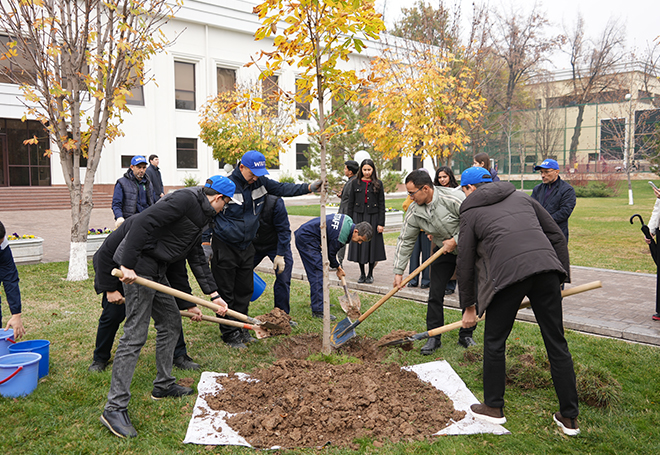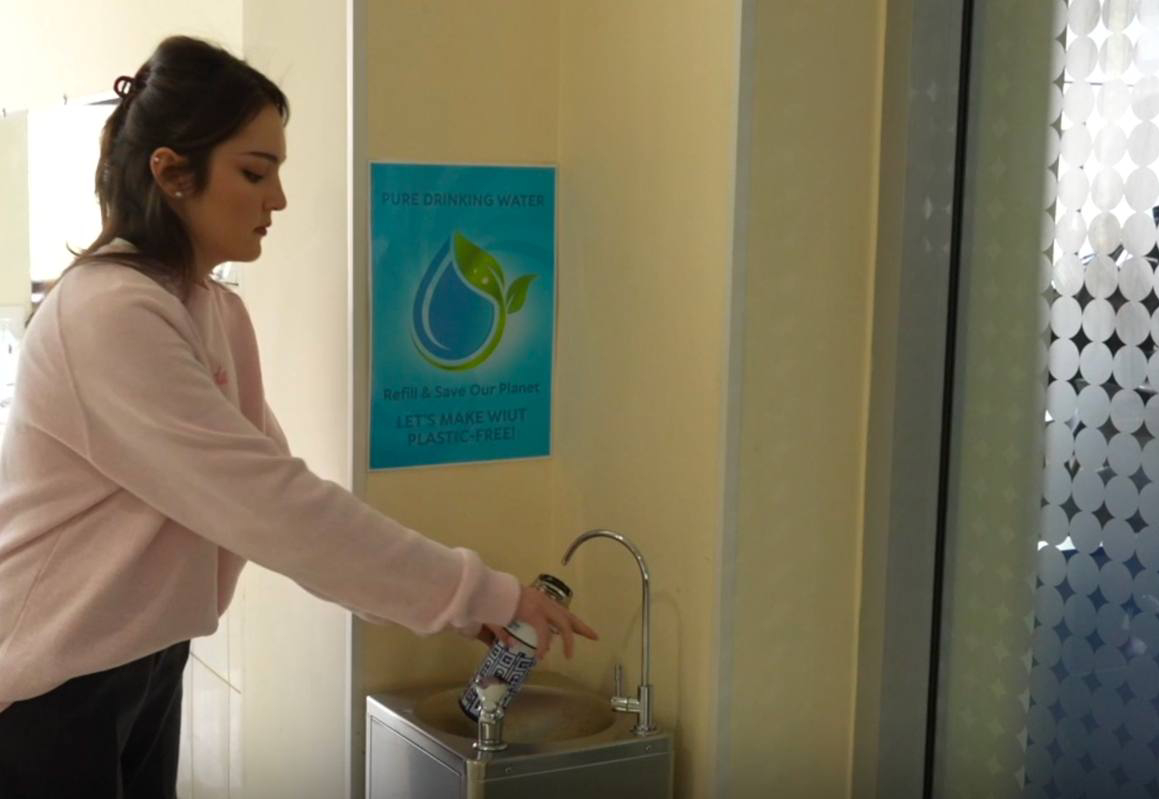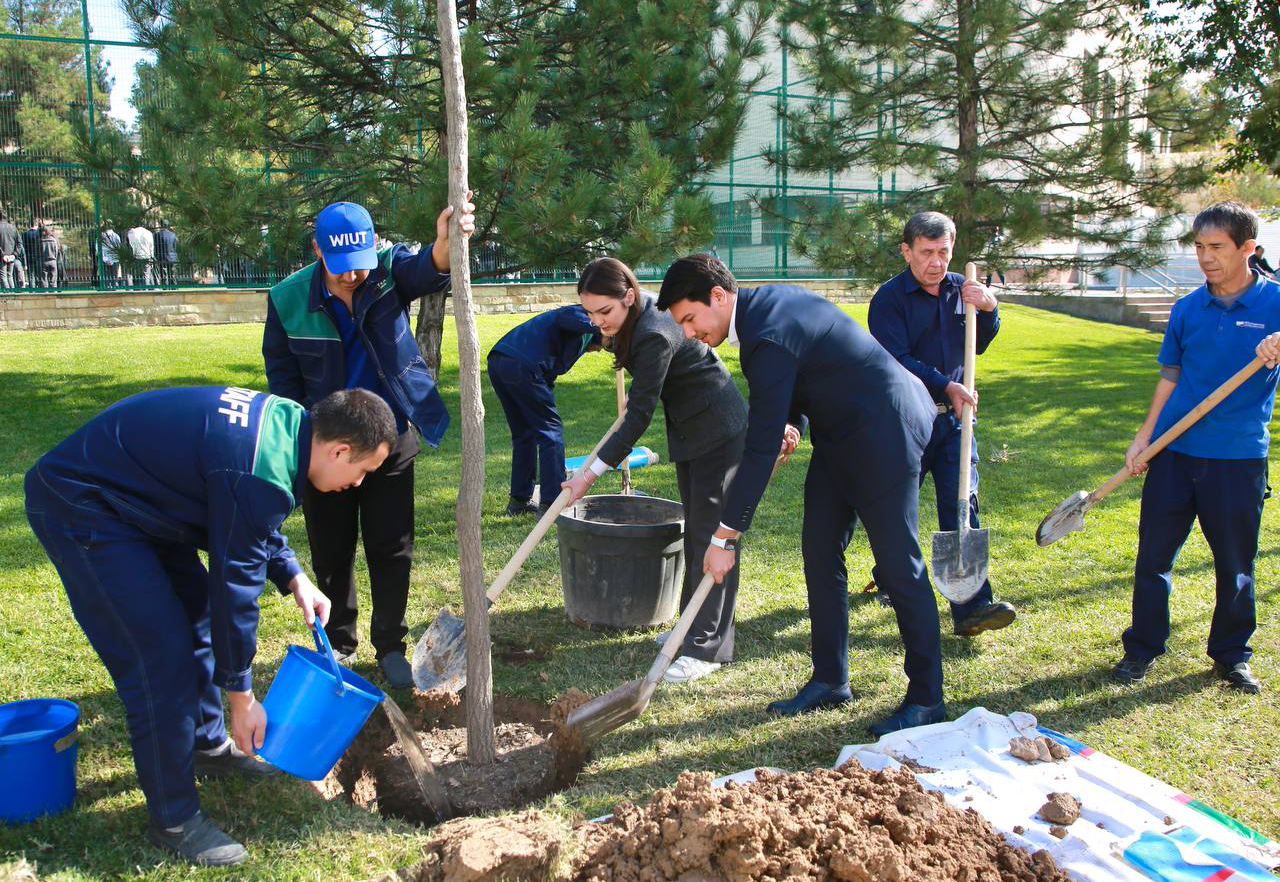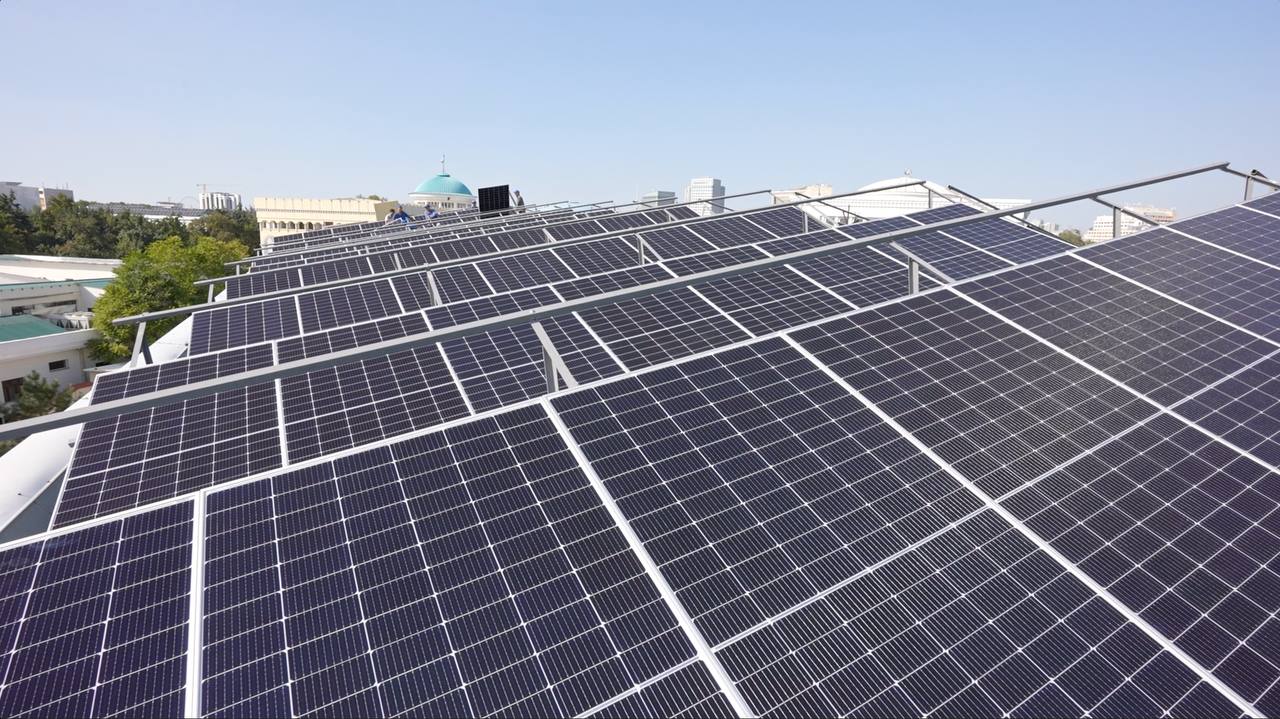INFRASTRUCTURE
Greener Campus
WIUT's Greener Campus initiative encompasses tree planting, waste reduction, and energy-efficient infrastructure, contributing to environmental sustainability. The university also participates in national environmental campaigns, such as the “Yashil Makon” project, reinforcing its commitment to ecological responsibility. Moreover, WIUT has contributed and has hosted number of research and capacity building projects to solve environmental issues. Among the projects are:
- OECD Green Growth indicators
- Circular Economy project (within Erasmus+)
- Other agriculture / rural development projects funded by FAO, IFPRI, IAMO

Green Campus Initiatives
1. Tree-planting initiatives: In line with the "Yashil Makon" national project, WIUT has planted trees to improve air quality and biodiversity. This initiative not only enhances the natural beauty of our campus but also reflects WIUT's commitment to Uzbekistan's national goals for environmental sustainability. We are proud to play our part in creating a greener future for generations to come.
2. Water Stations: Installed across campus, these provide fresh drinking water and encourage the use of refillable bottles, reducing plastic waste.
3. Waste management programmes: We promote recycling and responsible waste disposal through designated recycling bins and awareness campaigns.
4. WIUT Eco Club and student-led initiatives: Our Eco Club actively organizes sustainability workshops, clean-up campaigns, and awareness drives to engage the WIUT community.
5. Green spaces and biodiversity: Beyond tree planting, WIUT is working to develop more green areas on campus, including student gardens, pollinator-friendly plants, and shaded seating areas to promote well-being and biodiversity.




Efficient energy usage on campus and energy self-sufficiency
1. Solar Panel Installation
Following the initial installations in 2022, solar panels have now been installed across additional university rooftops, helping WIUT increase its reliance on renewable energy sources. These panels are making a meaningful contribution to campus electricity needs, reducing dependence on conventional energy.
2. LED Lighting and Energy Efficiency
The transition to LED lighting throughout campus buildings was completed this year, enhancing energy efficiency and lowering electricity consumption. Outdoor lighting now uses sensor-based systems that adjust lighting based on time and activity, reducing unnecessary energy usage.
3. Solar Water Heating
Solar water heating devices installed in university facilities are now a primary source for hot water needs, further reducing reliance on traditional electric heating systems and promoting sustainable energy use.

